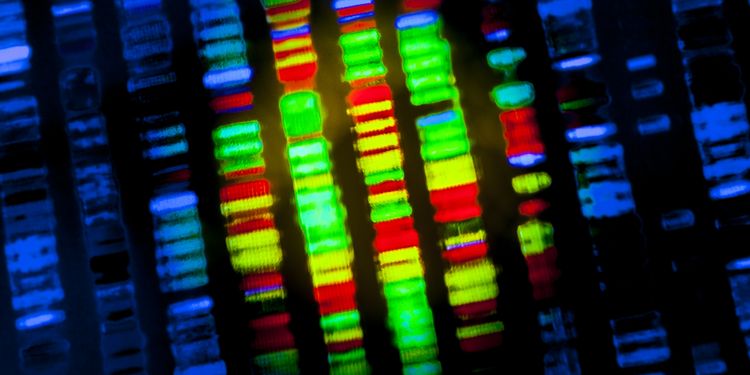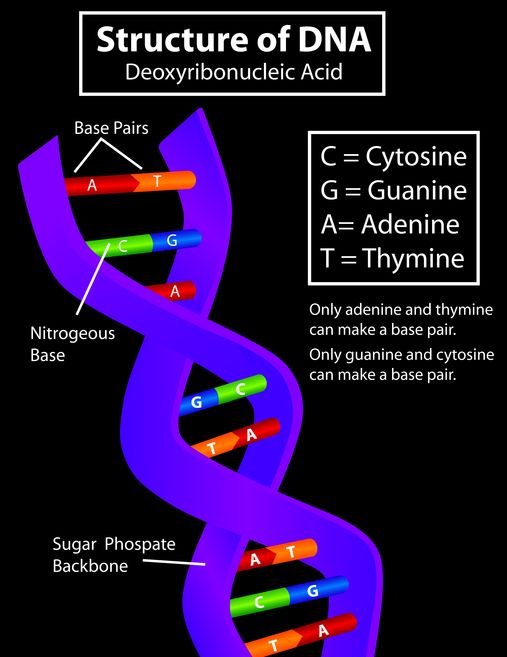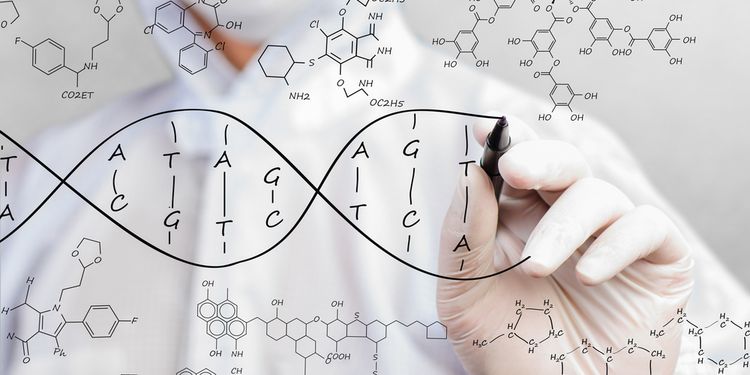Are Your Genes Really Your Destiny?

As a lifelong sufferer of IBD, Jill had concerns that her baby could inherit a form of the disease as well. But back in 1995, when her daughter Mika was born, genetic testing wasn’t so accessible. In fact, not too long ago, genetic testing was an idea straight out of a science fiction movie. We could only fantasize about having access to the seemingly unreachable information that exists within our genetic code.
Fast forward to today. Technological advances now allow us to understand why we don’t tolerate caffeine or medications well, why there’s a scent to our urine after eating asparagus, and why we’re predisposed to certain diseases.
Genetic tests literally unravel your genes and read the story the DNA tells, which is your specific and individual blueprint, unlike anyone else’s. You now have the ability to see exactly what makes you, YOU.
We’re beginning an exciting period in history—an age of precision and personalized healthcare. Genetic testing can provide people like Jill (and you!) with the tools to attain this level of customization.

Should You Get Genetic Testing?
Genetic testing can provide you with the ability to customize and target your healthcare and lifestyle according to what’s found in your genetic blueprint.
For example, some of these tests can tell you how well you’ll respond to certain medications, noting if you’re a fast or slow metabolizer, which will allow for precise dosing according to your needs. This is powerful information, and with it needs to come understanding.
Yes, you now have the ability to find out if you have genes that make you more susceptible to a myriad of diseases such as breast cancer, diabetes, and Alzheimer’s. However, it’s important to understand that your genes are not your destiny.
It’s so significant that it’s worth repeating. Your genes are not your destiny.
The rare exceptions are certain inheritable genetic diseases such as cystic fibrosis or hemochromatosis.
Many people get this information and become paralyzed with fear that their results are their fate, but that couldn’t be further from the truth. Genes are permanent, but they represent only half the story.
Like everything else in your body, there are dynamic biochemical processes that occur every second of every day, and these influence how your genes are expressed.
You have control over this process – it’s called epigenetics.

Epigenetics
Epigenetic factors encompass all of the environmental influences that help regulate gene expression.
Simply put, every choice you make each day is a step toward either health or disease.
Lifestyle factors such as diet, exercise, stress, thoughts/attitudes, relationships, toxic exposures (from air, food, water, chemicals, personal products, etc), and the health of your microbiome all influence your genes on a daily basis.
The way this works is the DNA that makes up your genes is covered in epigenetic tags that cause inactive genes to be tightly wound and unreadable, while active genes are relaxed and readable.
The epigenome constantly receives signals from the rapidly changing environment and adjusts gene expression accordingly. These signals direct and fine-tune cell functions.
Think of your genes as the gun and the environment as the trigger. Bad choices cause the gun to fire, producing disease, and good choices keep the safety engaged, producing health.
This is profound information, since you have the power to influence whether or not the genes that predispose you to a condition, such as diabetes, actually produce the disease.
Avoiding sugar, exercising, and managing stress will go a long way in preventing that from happening.
Your positive lifestyle choices also influence your offspring, as it’s now known that not only genes are passed on, but some of the epigenome as well.

Which Genetic Test Do I Choose?
Genetic testing can be complicated, and many considerations need to be taken before you jump in.
First and foremost, ask yourself the following questions: Do you want to know this information? How will it impact your life? What will you do with this knowledge? Once you have this information there’s no turning back, so make sure you’re prepared for the results.
There are several ways to go about testing. Raw genotyping, also known as exome testing, analyzes your genome and provides you with your personal code as raw genetic information. This supplies an abundance of information that must be interpreted. After you interpret the results, you’ll have a myriad of information regarding many aspects of your health.
If you want to start smaller or only have an interest in certain areas of your health, such as detoxification function or cardiovascular disease risk, then SNP testing may be right for you. These tests interpret your SNPs, or single nucleotide polymorphisms, where a change (mutation) in your DNA results in an error in the code.

Raw Genotype Testing
Raw genotype testing is available from companies like 23andMe, deCODEme, and Family Tree DNA. This type of test analyzes your genes, which are made up of long sequences of DNA.
DNA is comprised of four base pairs that make up your genetic code: A (adenine), T (thymine), C (cytosine), and G (guanine). This is what the test reads.
This type of testing gives you raw genetic material that must be interpreted to make sense of it, and even then you’re somewhat limited, since the field is in its infancy. More factors need to be better understood to make complete sense of this information, and that’s on the horizon.
Several sites on the internet provide interpretation, including Genetic Genie, puregenomics.com, promethease.com, opensnp.org, and snpedia.com.
Similarly, if you know you’re a carrier for a certain inheritable disease, such as Tay-Sachs, Huntington’s, or cystic fibrosis, or if you want to know whether you are, genetic testing for specific conditions is also available. These tests are smaller panels that look for specific genes. Healthcare providers and genetic counselors provide this type of testing and result interpretation.

SNP Testing
Your genetic code is important because it provides the instructions for how your body works. Genes direct enzymes that control your metabolic functions. Mutations in the code produce changes in enzyme function. Some of these mutations, called single nucleotide polymorphisms (SNPs), can be tested for.
A SNP (pronounced “snip”) refers to a single mutation where one DNA base is swapped for another (remember, the bases are A, T, C, and G, and they form the backbone of the DNA molecule). Some SNPs occur and nothing happens. However, other SNPs alter enzyme function, which may have health implications.
For example, with the MTHFR A1298C SNP (found at the 1298th position), a C is in the location where an A should be. This changes the gene’s instruction manual and alters the way enzymes work (they may work slower or faster than usual).
This particular gene encodes for the enzyme methylene tetrahydrofolate reductase (MTHFR), which is vital to homocysteine metabolism. When this SNP is present, there can be up to a 30% decrease in enzyme function.
It’s important to note that you have two copies of each gene, and this reflects the degree of altered enzyme function. One copy is considered heterozygous (denoted +/- or -/+), and having two copies is called homozygous (denoted +/+). Being homozygous produces a more substantial change in enzyme functionality.

Many SNPs exist, and some can be tested for. SNP testing is often completed as a single test or as a panel focused on specific areas of metabolism or conditions.
The 2 MTHFR methylation SNPs are widely available now from many places, including LabCorp and Quest, as well as specialty labs like Spectracell. Complete methylation panels showing all of the related SNPs (like MTRR, CBS, ACHY, etc) are also available from Doctor’s Data and Great Plains Laboratory.
Additionally, if you interpret your raw genotype test through Genetic Genie, it will also provide you with an analysis of the methylation genes. Genova Diagnostics offers SNP profiles that look at five key areas of health in their Genovations line: CardioGenomic, DetoxiGenomic, EstroGenomic, ImmunoGenomic, and NeuroGenomic.
Coming back to Jill, she’s grateful in hindsight that she didn’t do any testing back in the mid-90’s. She feels as though the results could have potentially driven her a little nutty. So with all of this said, it boils down to one important question for you. How much do you really WANT to know?
